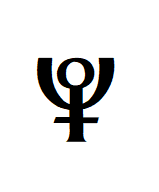
Introduction:
In the intricate web of Western astrology, Pluto stands as a celestial powerhouse, holding the key to profound transformation, rebirth, and the depths of the human psyche. Often referred to as the “Destroyer” and the “Phoenix,” Pluto’s energy is both intense and transformative, inviting us to journey through the realms of the unconscious, face our deepest fears, and emerge stronger, wiser, and renewed. This comprehensive exploration delves into the profound significance of Pluto in astrology, unravelling its symbolism, transformative influence, and its profound role in shaping birth charts and astrological interpretations.
The Symbolism of Pluto:
Pluto, the ruler of the underworld, symbolizes death, rebirth, regeneration, and the hidden forces that shape our lives. Its energy is both destructive and transformative, representing the cycle of endings and new beginnings. Pluto’s influence compels us to confront the shadows within ourselves, leading to inner growth and profound personal metamorphosis.
Pluto’s Astrological Placements:
Pluto’s placement within an individual’s birth chart offers insights into their potential for deep transformation, the areas of their lives that require regeneration, and their relationship with power and control.
Pluto in Aries: This placement ignites a transformative fire, urging individuals to assert their independence and embrace change with courage.
Pluto in Taurus: Taurus Pluto fosters profound transformation in the realm of values, resources, and material possessions, urging individuals to examine their relationship with materialism.
Pluto in Gemini: Gemini Pluto drives transformative energies toward communication, learning, and exploring the depths of intellectual pursuits.
Pluto in Cancer: This placement delves into emotional realms, leading to deep emotional healing and transformation within family dynamics and ancestral connections.
Pluto in Leo: Leo Pluto triggers transformations in creative expression, leadership, and the understanding of personal power.
Pluto in Virgo: Virgo Pluto stimulates transformation in health, work, and the quest for self-improvement and service.
Pluto in Libra: This placement fuels transformations in relationships and partnerships, leading to deep exploration of balance, fairness, and power dynamics.
Pluto in Scorpio: As its natural ruler, Scorpio Pluto intensifies transformative energies, unveiling hidden truths, and prompting a journey into the depths of the psyche.
Pluto in Sagittarius: Sagittarius Pluto stimulates transformative exploration in philosophy, beliefs, and the pursuit of higher knowledge.
Pluto in Capricorn: This placement focuses on societal structures, transforming systems of power, authority, and leading to profound shifts in career and public life.
Pluto in Aquarius: Aquarius Pluto fosters transformative energies within communities, encouraging innovation and collective change.
Pluto in Pisces: Pisces Pluto initiates deep transformation in spiritual understanding, compassion, and the exploration of unseen realms.
Pluto’s Influence on Personal Transformation:
Pluto’s placement in an individual’s birth chart offers a profound opportunity for inner growth, personal evolution, and empowerment. Embracing the energy of Pluto’s zodiac sign allows individuals to navigate the path of transformation, confront their fears, and emerge stronger and more self-aware.
Pluto’s Role as the Catalyst:
Pluto’s influence often brings forth upheaval, crisis, and challenges that lead to deep self-examination and transformation. While it can be uncomfortable, Pluto’s energy ultimately paves the way for profound personal growth.
Pluto’s Aspects in Astrology:
The aspects Pluto forms with other planets in an individual’s birth chart reveal nuanced insights into their capacity for transformation, empowerment, and control. Harmonious aspects like trines and sextiles suggest a natural alignment with Pluto’s transformative energy, while challenging aspects like squares and oppositions may signify areas of power struggles and intense transformational processes.
A Pluto-Mars trine may signify the ability to channel transformative energy into dynamic action, while a Pluto-Uranus square might point to challenges in adapting to sudden and disruptive changes.
Pluto in Synastry and Relationships:
In synastry, Pluto’s position and aspects offer insights into the dynamics of power, intensity, and profound transformation within relationships. Harmonious Pluto connections often signify relationships that catalyse personal growth and evolution. Challenging Pluto aspects in synastry may reveal areas where power dynamics and control issues may arise, leading to transformative growth.
Pluto’s Influence on Healing and Regeneration:
Pluto’s placement in an individual’s birth chart also influences their approach to healing, regeneration, and the exploration of the shadow self. By aligning their healing journey with Pluto’s energy, individuals can tap into their capacity for profound transformation, release past wounds, and emerge renewed.
Conclusion:
Pluto, the cosmic transformer, urges us to embrace the darkness within us as a catalyst for profound growth and renewal. As it navigates the zodiac, Pluto’s influence challenges us to face our fears, embrace change, and emerge from the depths of personal transformation stronger and more self-aware. By delving into Pluto’s symbolism, its astrological placements, aspects, and its role in personal evolution, we unlock the gates to our inner power and embark on a journey of rebirth guided by the celestial wisdom of astrology. In the tapestry of the cosmos, Pluto remains a beacon of metamorphosis, inviting us to embrace the alchemical process of personal transformation and emerge as the phoenix rising from the ashes of our own evolution.
Summary
Pluto
Rules the sign of Scorpio.
Rules the eighth house.
In detriment in Taurus, exalted in Pisces and in its fall in Virgo.
Takes about 248 years to complete one cycle.
Transits: Its time in each zodiac sign is long and varies from 12 to 32 years. It retrogrades every year, for about five months.
Symbolises: the transformation, power, and regeneration of the individual. It also represents the death, rebirth, and renewal that challenge the old and create the new.
Shows: the “how” (sign) and the “where” (house) we express our intensity, passion, and obsession. It also indicates our style of controlling, destroying, and healing.
Other Associations: the god of the underworld, the secrets, the mysteries, the taboos, and the water element.
Correlations with Body or Health: the reproductive system, genitals, anus, colon, and bladder. Pluto can also affect physical or psychological issues that influence the health and vitality.
Positive characteristics: transformative, powerful, resilient, resourceful, deep, and passionate.
Negative characteristics: manipulative, destructive, obsessive, compulsive, jealous, and vengeful.
Note:
[1] The outer planets of Uranus, Neptune, and Pluto are generational planets. Their orbits span significantly longer durations compared to the personal and societal planets (Mercury, Venus, Mars, Jupiter, and Saturn). This extended orbital journey allows them to spend considerable time in each zodiac sign. Consequently, their astrological impact becomes imprinted on an entire generation of individuals born during that specific period. Generational planets exert their influence on an individual’s birth chart by shaping the collective consciousness, societal trends, and historical events of a particular era. They encapsulate the overarching themes and shared struggles that define a generation as a whole, while also influencing the generation’s responses to these challenges. Additionally, they signify the potential for profound transformation and growth at both the individual and collective levels.
[2] Pluto’s orbit takes about 248 years to complete, but it does not spend the same amount of time in each sign. Pluto’s time in each zodiac sign is long and varies from 12 to 32 years because Pluto has a very elliptical orbit, which means that it moves faster when it is closer to the Sun, and slower when it is farther away. This is because Pluto’s orbit is not fixed, but influenced by the gravitational pull of other planets, especially Neptune. As a result, there are times during its orbit when Pluto comes closer to the Sun than Neptune does. However, for the majority of its orbit, Pluto is farther from the Sun than Neptune.
References
Woolfolk, Joanna Martine. The Only Astrology Book You’ll Ever Need. Taylor Trade Publishing, 2012.
Forrest, Steven. The Inner Sky: How to Make Wiser Choices for a More Fulfilling Life. Seven Paws Press, 2001.
Hickey, Isabel. Astrology: A Cosmic Science. CRCS Publications,1992.
Lineman, Rose & Popelka, Jan. Compendium of Astrology. Whitford Press, 1984.
Kent, April Elliott. The Essential Guide to Practical Astrology. Two Moon Publishing, 2016.
Hand, Robert. Horoscope Symbols. Whitford Press, 1981.
Bills, Rex. The Rulership Book. AFA,1971.
Sullivan, Erin. Retrograde Planets: Traversing the Inner Landscape. Weiser, 2006.
Sasportas, Howard. Gods of Change – Pain, Crisis, and the Transits of Uranus, Neptune and Pluto. Wessex, 2013.
Cunningham, Donna. Healing Pluto Problems. Weiser, 1986.
